In honor of the second annual Justice Stephen Breyer Lecture, the Foreign Policy program at Brookings hosted Ambassador Ahmet Üzümcü, Director General of the Organization for the Prohibition of Chemical Weapons (OPCW), to deliver a keynote address on the elimination of Syria’s chemical weapons program. Ambassador Üzümcü expounded on the mechanisms, legal framework, and cooperation within the international community that led to this unprecedented achievement.
Commenting on the Director General’s address, Deputy Assistant Secretary of State Mallory Stewart and Ambassador Robert Ford reflected on the unique circumstances that led to the successful application of international law in the Syria case, and the challenges that remain in reaching a broader political solution. All the speakers agreed that the OPCW had performed admirably under extremely challenging circumstances, in part due to the remarkable detail and flexibility of the Chemical Weapons Convention (CWC), the treaty which the OPCW executes, as well as the OPCW’s own technical expertise. The panel also agreed that the Syria case offered important lessons learned, and the work remains unfinished.
A remarkable achievement
Though the Syrian civil war rages on with no political resolution in sight, the elimination of Syria’s chemical weapons program offers a glimmer of hope, Üzümcü explained. In September 2013, Syria signified its intention to join the CWC, and the international community seized the opportunity to remove the threat of chemical weapons. Russia and the United States agreed to a framework for the elimination of all Syrian chemical weapons and the OPCW, headquartered in The Hague, was tasked with overseeing this process.
Ambassador Üzümcü outlined a number of critical challenges which made the Syria case unique and supports the thesis that “extraordinary situations call for extraordinary measures”:
- Typically this type of disarmament work is done in peaceful circumstances over a number of years, but Syria’s chemical demilitarization was executed amid an active conflict in compressed timeframes.
- Article 1 of the CWC precludes states from transferring weapons directly or indirectly, but removal and destruction of Syrian chemical weapons outside of Syria was accommodated by UN Security Resolution 2118 in support of a prior decision by the OPCW Executive Council.
- In the case of Syria, the possessor state was not assigned the role of destroying its own chemical weapons stockpile as is usually the situation, so the OPCW and its member states needed to find new and novel solutions, such as destruction at sea and in commercial facilities.
Lessons learned
Ambassador Üzümcü drew three key lessons from the Syria case:
- In any work towards peace and stability, one must act quickly and decisively to capitalize on every opportunity for disarmament.
- International legal and multilateral approaches to disarmament are indispensable.
- With sufficient political will, consensus can be reached even in the midst of an intractable conflict.
Commenting on the Director-General’s remarks, Mallory Stewart offered additional lessons learned, such as the importance of forging common ground, which the United States and Russia successfully did in this instance, while expanding beyond the lowest common denominator so that previous consensus does not limit the horizons of the possible going forward. She further emphasized the need to think creatively, as the OPCW did when it operated under previously untested authorities to investigate, inspect, and monitor the destruction of the Syrian chemical weapons program. Stewart, however, cautioned against permitting these legal solutions to stand as precedent in other cases—the facts of the Syria case were unique and the solutions may not be similarly suited to a different context.
Robert Ford, the former U.S. ambassador to Syria, recognized the terrific job the OPCW has done in eliminating chemical weapons from a conflict zone, but pressed that inspection and verification missions must be as intrusive as possible because the Syrian government did not declare all facilities in their initial declaration to the OPCW. He further outlined the politics of the framework agreement, noting that the United States and Russia had very different interpretations of the extent of Syrian culpability in the August 2013 Sarin gas attacks and they have thus been unable to agree on priority objectives in wider peace negotiations. He also reinforced the role of the international community, recommending that relevant actors be clearer about assigning responsibility for attacks in order to increase accountability and deterrence, and asked the international community to redouble its efforts to find a resolution for the broader Syrian conflict.
Next steps: Accountability, universality, and tools
The panel concluded by recognizing the importance of accountability, which is not part of the OPCW’s mandate, but instead is the responsibility of the international community, including the UN Security Council. They also discussed the six countries who are not parties to the Convention and the politics that preclude them from joining, though Ambassador Üzümcü asserted that there is no justification for these countries remaining outside the Convention since chemical weapons are not a strategic option for any of the holdouts nor for their regional neighbors. The Chemical Weapons Convention could serve as a model for other conventions, Stewart affirmed, though its success can be attributed not only to its flexibility, but to its strong and technically qualified implementing organization, the OPCW. Nevertheless, disarmament agreements and treaties have the potential to facilitate otherwise rare cooperation even in times of heightened tensions and have been surprisingly successful in challenging and even disastrous political situations.
Whether the international consensus secured in the dismantling of the Syrian chemical weapons stockpile can be found again to solve the broader political issues remains an open, and important, question. What is clear from this case is the important role of the OPCW and the treaty it executes, the Chemical Weapons Convention, which may offer a useful model for other international mechanisms seeking to maintain peace and security in a dangerous and unpredictable world faced with new challenges and difficult political realities.
The Justice Stephen Breyer Lecture on International Law addresses critical issues of international law and policy. It is presented annually by the Brookings Institution and The Hague Institute for Global Justice. Video, audio, and a transcript of the first annual lecture, delivered by Justice Breyer, can be found here.
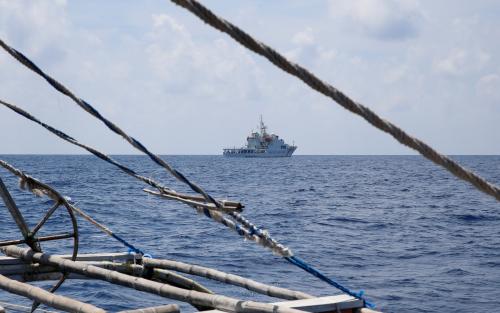
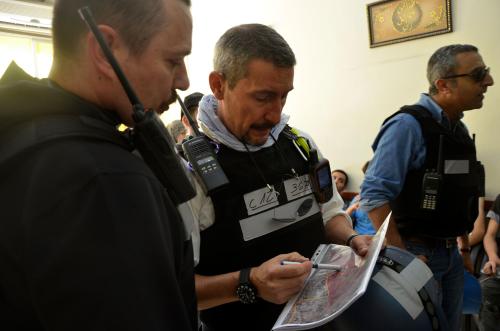
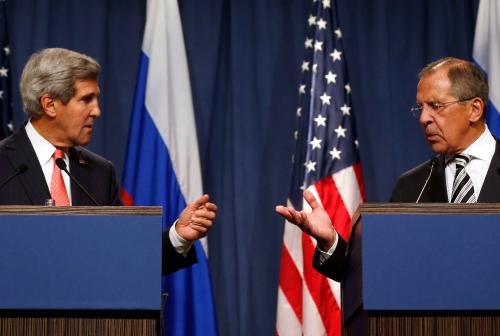
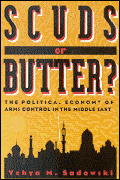
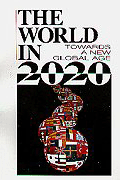
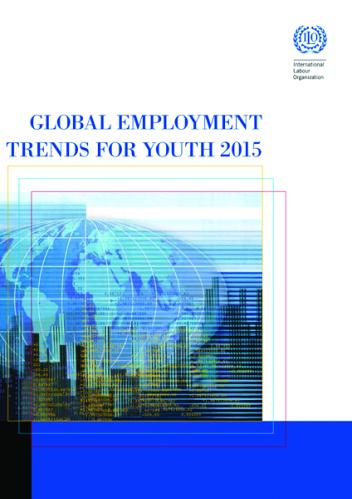


Commentary
The law and politics of eliminating Syria’s chemical weapons program
April 13, 2015